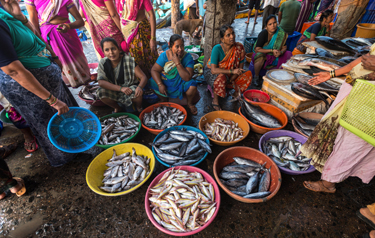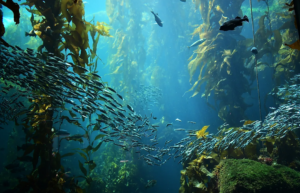
Fish serves as a crucial protein source globally, especially in regions with limited access to meat. Over the past fifty years, the demand for fish has surged, surpassing population growth. While marine capture fisheries meet most of the world’s seafood needs, their reliance poses significant challenges, including overexploitation of fish stocks and stakeholder conflicts.
In India, with its extensive coastline and a large population dependent on fish, these challenges are particularly acute. The marine capture fisheries sector faces issues such as excessive fishing effort, overexploitation in inshore waters, and conflicts among user groups, threatening sustainability and requiring urgent action.
One critical issue is the overexploitation of fish stocks, notably in inshore waters. Increasing fishing efforts have led to diminishing returns and potential irreversible harm to fish populations. Moreover, conflicts among stakeholders, including fishermen, coastal communities, and government agencies, worsen the problem, hindering effective management and conservation efforts.

To ensure the long-term sustainability of India’s marine fisheries, a multifaceted approach is necessary. Effective management measures are paramount to regulate fishing activities and prevent overexploitation, such as setting catch limits, implementing gear restrictions, and establishing protected areas for fish stock replenishment.
Promoting sustainable fishing practices is crucial, encouraging techniques that minimize environmental impact, like selective fishing gear and avoiding fishing during spawning seasons. Raising awareness among fishermen and coastal communities about conservation and sustainable fisheries management fosters stewardship and responsible fishing practices.
Collaboration among stakeholders is essential for effective fisheries management. Engaging fishermen, government agencies, NGOs, and other parties in decision-making ensures inclusive, transparent policies. Dialogue and cooperation mitigate conflicts, enabling collective action toward sustainable fisheries.
In conclusion, addressing India’s marine capture fisheries challenges demands concerted efforts. Implementing effective management measures, promoting sustainable practices, and fostering stakeholder collaboration can work towards long-term sustainability and safeguard the livelihoods of coastal communities
Frequently Asked Questions (FAQs)
Why marine fisheries are important for India?
Marine fisheries provide a vital source of protein for many people in India, especially in regions where access to meat is limited. Additionally, the fishing industry supports the livelihoods of millions of people along India’s long coastline.
What are the main challenges facing India’s marine capture fisheries?
The marine capture fisheries sector in India faces significant challenges, including excessive fishing effort, overexploitation of resources in inshore waters, and conflicts among different user groups. These challenges threaten the sustainability of India’s marine fisheries.
How does over exploitation affect fish stocks in India?
Overexploitation of fish stocks, particularly in inshore waters, has led to diminishing returns and potentially irreversible damage to fish populations. This not only threatens the availability of fish for future generations but also undermines the livelihoods of those dependent on fishing.
What measures can be taken to address these challenges?
Effective management measures, such as setting catch limits, implementing gear restrictions, and establishing protected areas, are essential to regulate fishing activities and prevent overexploitation. Promoting sustainable fishing practices, raising awareness, and fostering collaboration among stakeholders are also crucial.
What role do stakeholders play in ensuring the sustainability of India’s marine fisheries?
Stakeholders, including fishermen, government agencies, non-governmental organizations, and coastal communities, play a vital role in fisheries management. Collaboration and cooperation among these groups are essential for implementing inclusive and effective policies that safeguard the long-term sustainability of marine fisheries in India.


